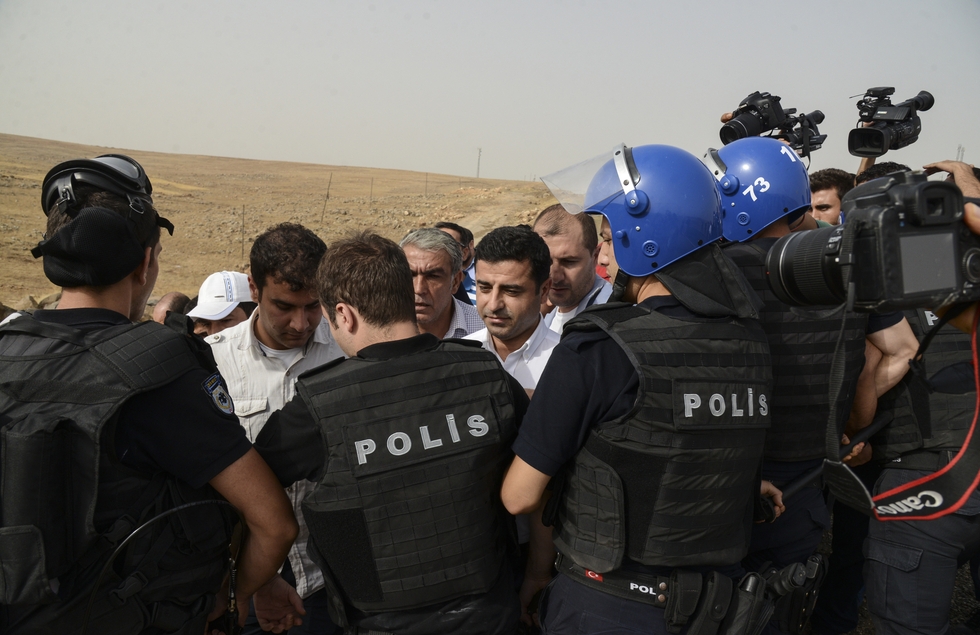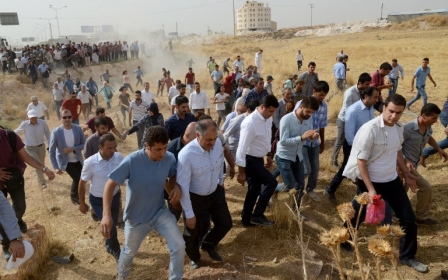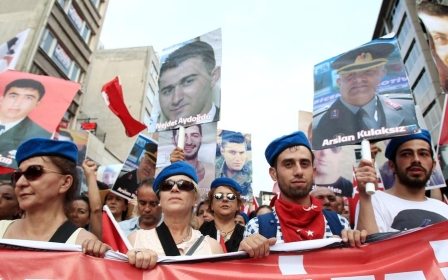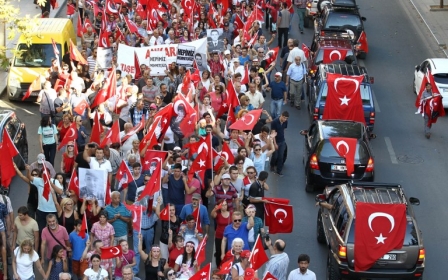At least 30 killed in Kurdish town of Cizre: Ministry

More than 30 people have been killed in a military operation in the south-east Kurdish town of Cizre, the interior ministry said late on Thursday.
Interior Minister Selami Altinok said that up to 32 members of the outlawed Kurdistan Workers’ Party (PKK) had been killed in Cizre, adding that just one civilian had been killed in the clashes.
But the pro-Kurdish Peoples' Democratic Party (HDP) said that at least 20 civilians, including some children, were killed in the violence.
The Firat news agency, seen as close to the PKK, claimed that two youngsters aged 10 and 15 were shot dead overnight for breaking the curfew. There was no official confirmation of the report.
Residents of Cizre, which has a population of 120,000, say that they have been under siege by the Turkish army which imposed a curfew last week.
On Thursday, police stopped a delegation of HDP leaders who were trying to reach the south-eastern city on foot.
The group includes the party's leader Selahattin Demirtas and 30 members of parliament, who said they want to draw attention to what is happening in the mainly Kurdish area.
"Normally, the fine when someone breaks a curfew is 100 Turkish Lira ($33)," said Demirtas.
"In Cizre, the fine is the death sentence and executions," Turkish media quoted him saying in the town of Idil west of Cizre.
"Those who venture out into the streets are killed by snipers. A violation that normally costs just 100 Lira has become the price of death for the Kurds," Demirtas added.
The ministry said the HDP delegation had not been allowed into Cizre because of security concerns, although the HDP have dismissed this.
"We don't believe we face any threats from the people of the town. The only threat we face is from the soldiers who block our way and don't let us in," Saruhan Oluc, one of HDP MPs trying to get to the city, told the BBC.
The curfew has been placed in the district since last Friday after violent clashes broke out between the PKK and the police.
Turkish officials said the curfew was a necessary response to "an increase in terror incidents in Cizre" as dozens of members of the security forces were killed in a series of rocket-propelled and grenade attacks carried out by Kurdish militants, Turkish media reported.
Demirtas has also stressed that the humanitarian situation in Cizre is worsening, with people unable to buy bread or access water. He said that severe restrictions on movement meant that the bodies of some who were killed could not be buried immediately, and were being kept in refrigerators. However, Altinok showed no signs of backing down and asserted that the curfew would continue until the military operation was completed.
Analysts have referred to the popularity that HDP has from towns like Cizre, where 85 percent of the city population voted for them in the June elections.
Selin Girit, an analyst with BBC Turkish, pointed out that the HDP's success in those elections had cost the governing Justice and Development Party (AKP) its parliamentary majority.
After failing to form a coalition government, Turkish President Recep Tayyip Erdogan has called for snap elections to take place on 1 November.
This has raised concerns regarding the security of the poll, especially in the predominantly Kurdish east and south-east of the country.
"If the situation carries on like this, every town where the HDP got huge support in June elections will be treated in the same way," said HDP MP Ertugrul Kurkcu. "We think that will have terrible consequences."
New MEE newsletter: Jerusalem Dispatch
Sign up to get the latest insights and analysis on Israel-Palestine, alongside Turkey Unpacked and other MEE newsletters
Middle East Eye delivers independent and unrivalled coverage and analysis of the Middle East, North Africa and beyond. To learn more about republishing this content and the associated fees, please fill out this form. More about MEE can be found here.




